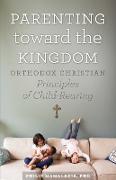- Start
- The role of age gender and socioeconomic status in spiritual intelligence in adolescents and young adults
The role of age gender and socioeconomic status in spiritual intelligence in adolescents and young adults
Angebote / Angebote:
There is no universally agreed definition of human intelligence (Emmons, 2000, Neisser et al., 1996, Sternberg, 1997). However, forwarded by 52 university professors, one of the best definitions of intelligence was published in the Wall Street Journal in December, 1994 entitled, "MainstreamScience on Intelligence". The same definition was also published in the journal Intelligence (Gottfredson, 1997). According to this definition, intelligence is: "A very general mental capability that, among other things, involves the ability to reason, plan, solve problems, think abstractly, comprehend complex ideas, learn quickly and learn from experience. It is not merely book learning, a narrow academic skill, or test-taking smartness. Rather, it reflects a broader and deeper capability for comprehending our surroundings- "catching on", "making sense" of things, or "figuring out" what to do.¿ The theme one finds in the various definitions of intelligence is that intelligence makes sense of things and then brings adaptive and creative (problem-solving) capacities to bear on the problems which human beings face. Thus there are at least two components to any intelligence: interior comprehension and sense-making, exterior behaviors which are adaptive for the situation. Gardner (1993), in his theory of multiple intelligences, offers a 2 more refined view of intelligence within the context of this general definition. He defined intelligence as "the ability to solve problems that are valued in one or more cultural or community settings". Gardner¿s seven intelligences (1993) included linguistic, logical-mathematical, music, bodily-kinesthetic, spatial, interpersonal, and intrapersonal intelligences. In a subsequent revision of his theory of multiple intelligences, Gardner emphasized more on cultural and contextual factors in the development of intelligence (Gardner, 1999). He retained the original seven intelligences, but acknowledged the possibility of adding new intelligences to the list. Subsequently, two intelligences which received increased scholarly attention within the context of multiple intelligences include emotional intelligence (EQ) and spiritual intelligence (SQ).
Folgt in ca. 10 Arbeitstagen


